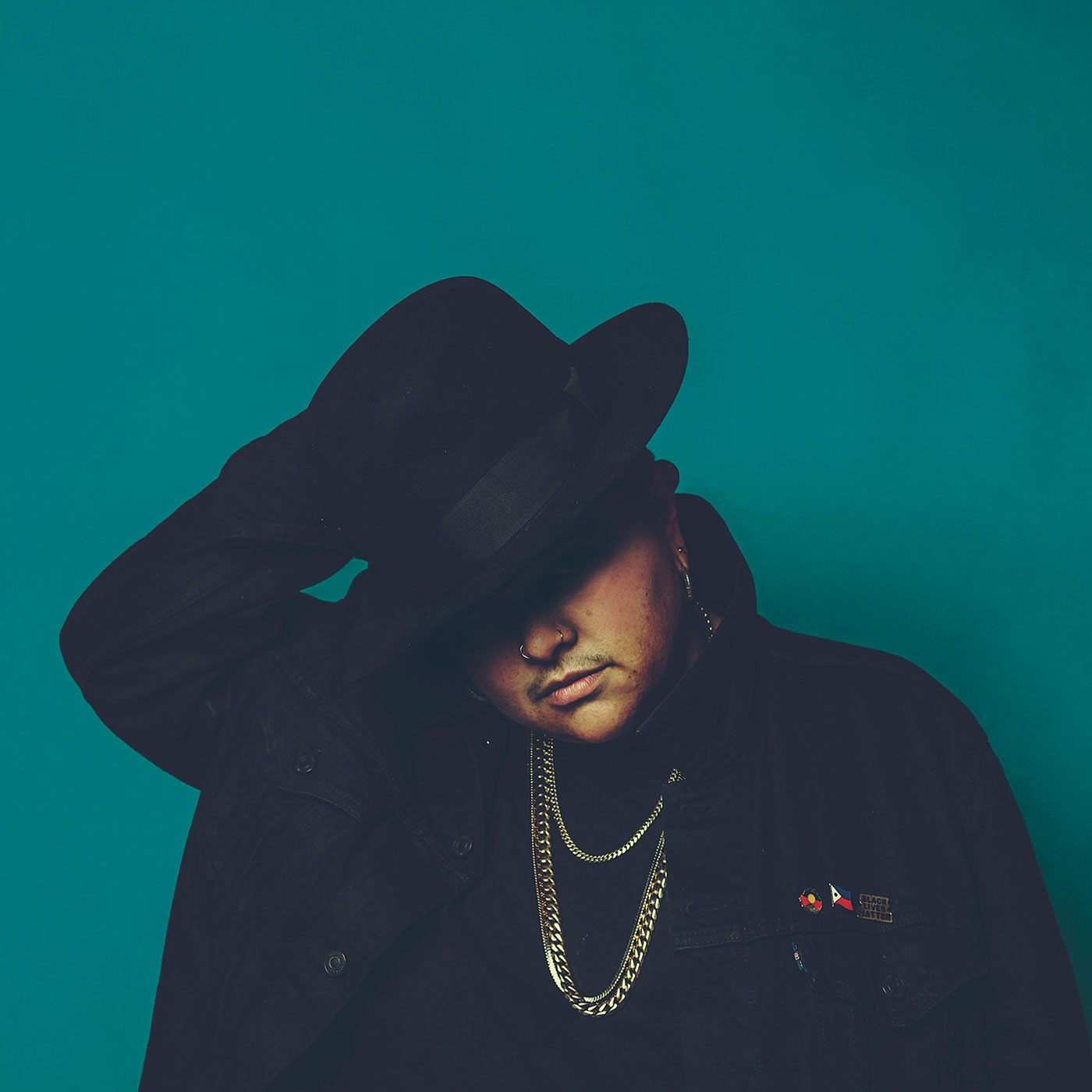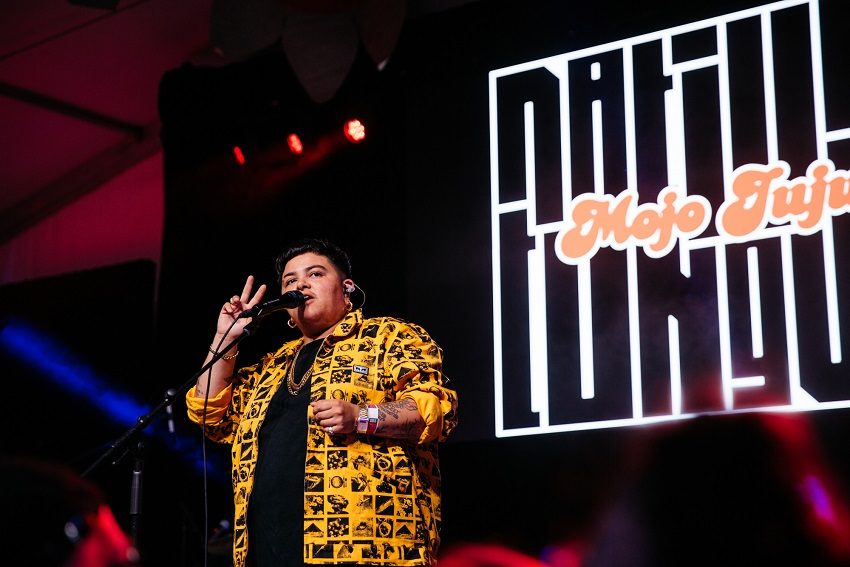Mojo Juju claims a place in the conversation

Mojo Ruiz de Luzuriaga is many things. She’s a singer with a powerful voice and captivating stage presence. She’s Wiradjuri, Filipino and queer. She also defies categorisation.
“I can be 100 per cent of one thing but also 100 per cent of another,” she declares, before adding, “I’ve never been very good at maths.” Even a proficient mathematician could be excused for losing count of the accolades she’s been awarded since the release of last year’s Native Tongue, which explicitly deals with the intersectional nature of her identity. For her, the album (and in particular the incendiary lead single) was about “allowing yourself to own all those different parts of who you are.”
Owning her identity and taking pride in her points of difference wasn’t always easy. “I read quite ethnically ambiguous,” she explains, “and when people don’t immediately identify with you that can be a lonely experience.” Growing up identifying with groups who didn’t necessarily reciprocate that recognition informed a lot of Native Tongue, a perspective that has resonated with listeners.

That response has led to what Ruiz de Luzuriaga admits is “a bit longer than the average album cycle” but as 2019 draws to a close, she’s taking a valedictory lap of the country. There’s also “a pretty good chance” that some new material will make it into her set. “I’ve been writing a lot and I’m ready to unleash that,” she says.
Ruiz de Luzuriaga will also be joined by her brother Steve (“T-Bone”) on drums, and having family on the road with her has been particularly important while touring this record. Native Tongue is a highly personal record, but it’s not just her tale – it’s also the story of her family. For some of the songs, she sat down with her grandparents, who are struggling with dementia, and listened to their stories.
The experience was “a really cathartic healing process for me and my family”. She describes the experience of singing those songs back to them as “the most present I’ve ever felt onstage” and they literally have a voice on the album through spoken interludes from her grandmother and father.
The first words on the album, “I don’t speak my father’s native tongue”, reference her Filipino father’s decision to not teach his children Taglog, to protect them from the prevalent racism he saw around them. But Andrew Bolt fundamentally misunderstood the nature of Native Tongue when he infamously described the song as a complaint.
In response, the articulate songwriter took the high road, replying that it was in fact an “expression of some complex emotions, such as grief for a loss of culture and Indigenous languages and other impacts of assimilation, colonisation and the white-washing of non-western cultures. This is not a song of self-pity,” she concluded. “It is a song of self-empowerment.”
It wasn’t just a repudiation of his facile reading, but of the way he and his contemporaries have treated anyone who doesn’t look or act like them for too long. That’s an attitude that won’t wash with Ruiz de Luzuriaga.
“If you wanna have a conversation about me,” she says with the evident pride she brings to everything, “you’re gonna have to include me in the conversation.”